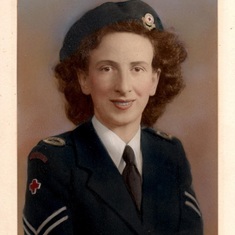The war between the North and the South with American backing, in a bid to stop the whole country becoming Communist, ended in 1973. Britain was one of several countries offering help after the devastation, and Jim's firm was asked to be responsible for the design and preparation of Water Supply Schemes.
Arriving in Saigon in April 1973, I was struck by the complete hustle and bustle. This city had at one time been called the 'Paris of the Orient' and it still retained its French influence, the once palatial, but now shabby, Post Office and, in the streets, old cars (generally taxis), cycles, motorbikes and, most of all, cyclos. Music blared across the street where the shabby shops and stalls selling such food as sugar cane and noodle soups, nambutan, mango and other fruits in abundance stood next to those so elegant with French influence. I loved the variety of fish, particularly the jumbo shrimps. The women all wore the traditional 'aû-doi' with the conical hats and they looked so pretty, often sitting side-saddle on the motorbikes. Sadly though, one was always aware of the poverty, the many beggars and, above all, the little street orphans.
I only learned a few words for the market. As ever, everyone wanted to air his knowledge of English, (American presence for years had helped.)
I had a three-part life. The political situation was such that I typed Jim's confidential work. He was a 'workaholic', mostly down in the Mekong Delta where the schemes were to be. I knew that for me it could be 'on my own' as there were virtually no other British women, apart from a very small British charity and the Embassy. Fortunately, the American Church I attended was very friendly and the service similar to ours.
There were a lot of orphanages – some supported by America, France and Australia. Families, too, had sponsors, and letters telling of their lives had to be sent. So most afternoons saw me going through a pile, correcting the English enough to make them literate without spoiling the tone. I learnt a lot about family life. It was amusing to read 'he is very old' or 'very young' – never anything in between. Quality was referred to as 'No 1' or (at worst) 'No 10'. That, as well as weekly 'English' conversation sessions with two Japanese students and the French Ambassador's wife, was the second part.
I joined the Cercle Sportif – this huge club had tennis courts and bridge. I confess to being completely spoilt there, being the only British woman with only one or two French ladies. Scoring was often in French. I played both games in one evening, half tennis, half bridge – happy memories in plenty.
Sometimes I took the local bus (it left when there was a sufficient number of passengers hanging on the step rail). If going southwards to the Mekong Delta, there would be the rivers, canals and the huge rice fields with the beast of burden, the buffalo, toiling in them with its master (or mistress).
Northwards, as in Saigon, there were always the Pagodas and Temples. It was very scenic – the rivers with the little boats taking produce to sell in Saigon and the buffalo-drawn carts. The Viet Cong were becoming more active – the road behind me closed, so I made my way to an orphanage for the night. (The sisters offered me mango after mango – I hate this fruit – but eating them was a 'must'.)
One national holiday, Jim and I went through the Central Region to the Imperial City of Hue. It had such beautiful pagodas, many historical buildings relating to the Dynasty; the walls of the City enclosed palaces, temples and gardens. We saw the Imperial Tombs and walked by the Perfume River. The climate is just perfect for the vegetables and fruit in the region. It had a lovely coastline and the beaches were just waiting for the tourists of today. There were hill resorts – the Region was extremely beautiful. We also went round a Leprosy Mission Home run by French Nuns, a humbling experience. We were not allowed to enter the North Region and Hanoi, the old capital.
Orphanages were dotted all over Vietnam. Despite the aid to some from the three big countries, the conditions varied. (Money was often ill-used.) Visiting one, I thought we had mistakenly been taken to a chicken farm – a large field with just huts – each was full of orphans. Despite the large number of orphans, it was difficult to adopt except by those countries who had official agencies. Having no children, we had for a long time wanted to adopt, and were delighted when we were able to have Thugna (Swan of the Autumn) at a Good Shepherd Home.
For some time Saigon was changing. News of Viet Cong movements frightened many – the wealthy and the refugees were trying to leave – the latter had often worked with Americans. Curfews had become earlier and as the Viet Cong advanced towards Da Lat it was chaos.
For me, my two years ended swiftly. Having heard on the radio one morning of the crash of a Jumbo taking 300 orphans to America (all were killed), I received a message from the Embassy advising me to leave on the Daily Mail plane which had landed to take orphans. Minutes later I was there with Thugna – departure delayed – permission withheld – finally off: almost walking from Saigon to the UK, the children needed so much attention.
On landing, I was besieged by reporters and the BBC whisked me to the studios, where my TV appearance told my anxious family I was home.
Edna Smith
